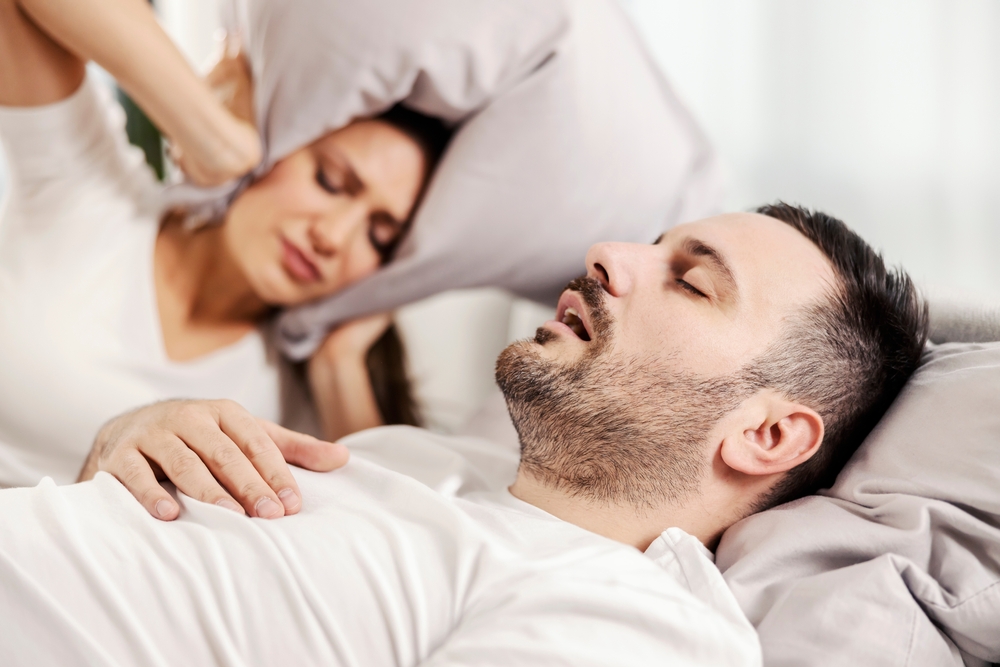
Your quality of sleep and your partner’s health can be seriously impacted by sleep apnea, which is a dangerous medical condition. Your partner might have sleep apnea if their loud snoring is keeping you from a good night’s sleep. It is possible, however, to have sleep apnea without snoring and it’s also possible to snore without having sleep apnea. If your partner’s snoring interrupts your sleep, seeking a professional diagnosis is critical, as untreated sleep apnea can lead to severe health issues.
Understanding obstructive sleep apnea
Millions of Americans experience the prevalent sleep disorder known as obstructive sleep apnea (OSA). This condition triggers repeated disruptions in breathing throughout the night, which can happen hundreds of times. Typically, a partial or complete obstruction of the airways is the cause of these disruptions, and that causes the diaphragm and chest muscles to do a lot of extra work to breathe. When breathing resumes, it is frequently coupled with a loud gasp or a body jerk.
Chronic OSA prevents your partner from achieving restful sleep, reduces the flow of oxygen to vital organs, and can lead to heart rhythm disturbances. While OSA is more prevalent in people who are overweight and over 50, even kids can develop this condition.
Identifying the symptoms of sleep apnea
Often, the person with OSA is unaware of their condition, but their partner can observe the signs. Here are a few common signs of sleep apnea:
- Dizziness in the morning
- Snoring loudly
- Morning dry mouth and headaches
- Feeling run-down and fatigued during the day
- Difficulty concentrating
- Gasping for air and choking upon sudden awakening
- Having to get out of bed frequently to urinate
One telltale sign is a period of silence following deep snoring, then an abrupt choking or gasping sound. This routine can leave both partners feeling unrested and fatigued throughout the day.
What are the health impacts of OSA?
Sleep apnea can significantly impact health and well-being. Job performance can be impacted by poor focus and car accidents can be the outcome of daytime drowsiness. Diabetes and high blood pressure are even more critical health risks of OSA. People with sleep apnea are more likely to experience heart attacks due to oxygen deprivation, and conditions like stroke and atrial fibrillation are also linked to OSA.
Being overweight is a substantial risk factor for sleep apnea, and the condition itself makes losing weight more difficult. Memory problems, known as mild cognitive impairment (MCI), and depression are additional concerns associated with neglected sleep apnea.
It’s dangerous to leave sleep apnea undiagnosed and untreated. Notably, numerous celebrities, including Reggie White, Jerry Garcia, Carrie Fisher, James Gandolfini, and John Candy, have died from complications pertaining to sleep apnea.
Taking action for better health
It’s crucial that you have a conversation with your partner if you are observing symptoms of sleep apnea. For the sake of both, their health, and your well-being, consider seeking professional help. A comprehensive sleep study and evaluation can diagnose OSA, and effective treatment can relieve many of the related physical and emotional problems.